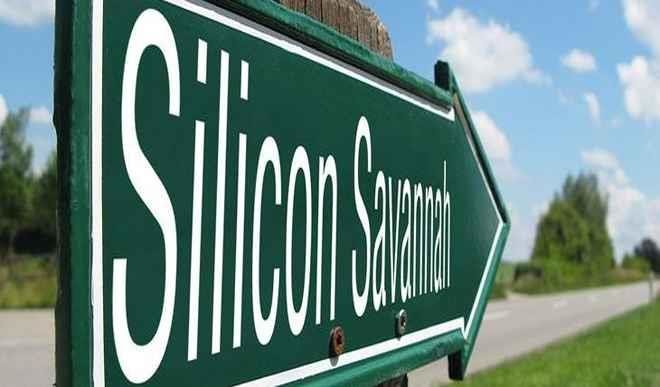The new Silicon Valley? Can Africa save the world?
The story is changing. Africa moves to save the world. A new book gives hope. Our continent is often analogized either as an overly dependent child or an invalid old individual, unable to do anything for themselves without support. That is why it is comforting to see an outsider describing us in favourable terms. […]

![]()
The story is changing. Africa moves to save the world. A new book gives hope.
Our continent is often analogized either as an overly dependent child or an invalid old individual, unable to do anything for themselves without support. That is why it is comforting to see an outsider describing us in favourable terms. Africa, Alex Perry said, far from being a dark continent, can actually save the world.
In his new book, “The Rift,” Perry argued that three things can power Africa to be truly independent and not only help itself, but also help the world. These three things are mobile technology, agriculture and sustainable energy – mainly solar.
Africa has found creative ways to use mobile technology. By 2015, the continent had one billion mobile phones. This is good news because London Business School in a study, reported that a 10% increase in mobile phones could result in an increase in national income by 0.6 to 1.2%.
But that is not all, even the developed world is learning from the creative ways we use mobile technology in Africa, especially in the way we transfer money. Example is how Safaricom, a telecommunication company in Kenya, transfers money by text messages. And then that money can then be passed to anyone (from a shop keeper to a man on the street) by sending them a PIN-secured text. It became so convenient that people denied access to traditional bank accounts started saving through this virtual money.
This led to many related companies springing up, creating employment and other opportunities.
This development prompted Carol Realini, CEO of Obopay in Californa to say, “Africa is the new Silicon Valley of banking.”
This pioneering effort from Africa leaves the developed world wondering if they should follow our example.
Another way Africa is battling to crawl out of the poverty hole is by creatively using renewal energy to provide electricity. Lack of electricity can be a poverty trap. Some villagers trek five kilometers to reach the nearest plug to recharge their mobile phones. This lack of electricity can also stunt the growth of education. Children in rural areas for example who have never seen electricity, can’t read at night or do homework, leaving many of villages without even a single university graduate. However, through solar energy, this problem is being eliminated gradually.
For example a solar energy project in Kenya by Cambridge University provides solar electricity to rural Kenyans at affordable rates where they pay as little as $1.20 per month. This simple initiated has prompted has created some businesses and employment.
Also, Africa has 1.46 billion acres of farmable land, more than the rest of the world combined. This maybe the key in not only helping end poverty in Africa, but also end world hunger.
History has shown us that farming can be a great way to develop wealth. We learned from the International Food Policy Research Institute that when farmers’ income increases by 1%, extreme poverty decreases by 0.6% to as much as 1.8%.
China provides a good example of economic development through agriculture. Since 1978 up to 2011, Chinese farming income increased by 7% each year. Interestingly, in that time, poverty decreased from 31% to just 2%.
With our huge land, Africa can take advantage of this type of growth. And the revolution has already started. Africans are moving from survival farming to mass production agriculture. Again, we go to East Africa to draw our example. In Ethiopia, Eleni Gabre-Madhin, one of the country’s leading economists, created the Ethiopian Commodities Exchange as a central trading organization in 2007.
Along with this development, inspectors were recruited to supervise produce quality and provide security to both buyers and sellers. The organization also provides fair prices that it sends to farmers through mobile phones. This allows them to predict future income and to plan.
It also allows banks to feel more secure in granting loans to farmers for investment. This has resulted in growth. For example, between 2006 and 2013, agricultural production in Ethiopia increased by 7.8%.
Even Nigeria got a favourable mention. Instead of being used as an example of a huge population without productivity in many economics textbooks, such as the “Little Book of Economics” by Greg Ip, Alex Perry gave examples of Raji Fashola, and how he revolutionized Lagos State. And of Sanusi Lamido Sanusi, the former CBN governor, now emir, and how he fearlessly fought corruption. “If you think of loss,” he quoted Sanusi to demonstrate his fearlessness, “as the loss of freedom or loss of life, you miss the point. If you die for a just cause, you are free.”
Perry brought these examples to stress the point that not all African leaders are corrupt despots. For example, when Fashola became governor of Lagos State, most of the city had no running water, sewage system or electricity, but he transformed the slums into a functioning city. When he came in, only one third of the city had access to water. But a few years later, two third had access to clean water. He protected different parts of the city against flooding, he replaced garbage dumps with green parks and in the process created 42,000 new government jobs.
While good news is hard to come by in Africa, Alex Perry’s book gives us hope. It also helps that the observations come from an outsider. Perry is a Western journalist who spent a lot of time in Africa and Asia and therefore his insights are even more poignant because he has seen the problems from all sides.
[email protected] | Twitter: @dooba123
